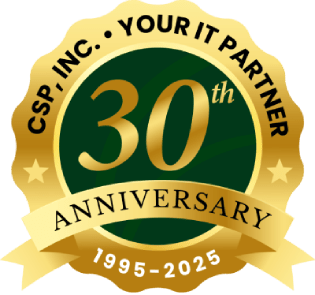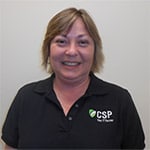1310 Nowell Road
Raleigh, NC 27607
1310 Nowell Road
Raleigh, NC 27607
Existing CSP Client: (919) 424-2060
SALES: (919) 420-3231


Microsoft doesn’t want the Windows market to be split into a variety of versions. At one time Windows XP, Windows 7, Windows 8 and Windows 8.1 were all being supported at once. This caused developers to choose between the best functionality and the most widely compatible version. And many users lost out on the latest features or security updates because they didn’t have the latest Windows.
Most non-corporate Windows users never buy a Windows license – they buy a PC, and the PC’s manufacturer has already paid for it. The majority of people won’t shell out more money when an upgrade is available; they only get the latest Windows when they actually buy a new PC. That leaves old versions of the software out there for years. But Windows 10 is changing that…
Last week Microsoft announced that current users of Windows 7, 8 and 8.1 will receive free upgrades to Windows 10. For now, it’s a limited offer that will last a year after release. Likewise, those new Windows 10 machines will receive upgrades for free for the entire lifetime of the device. Gone are the paid major version upgrades that Windows has offered in the past. New features and capabilities will no longer be held back until the next release of Windows, they’ll be downloadable as soon as they’re ready for the market. Microsoft is hoping that by offering this free upgrade and making it as easy as possible, they can post a stop to the fragmentation of the Windows world.
People will still be buying and building new PCs, and those PCs will still need Windows licenses. Those Windows licenses will, for the time being, still cost. What Microsoft is giving up is not Windows license revenue, but rather upgrade license revenue. But upgrades were never a major money-maker in the first place, so the impact won’t be huge.
One important Windows demographic will be greatly affected by the continuously-updated new Windows: businesses. For the mission critical systems that cannot be adjusted without extensive testing and approval, Microsoft is introducing Long Term Servicing branches. These branches will be the most stable Windows versions that Microsoft has ever release.
Windows’ support is currently split into two five year periods – a Mainstream period where both feature improvements and security fixes are made, and an Extended period where only security fixes are made. The LTS branches will receive only security and critical fixes over the entire ten year support duration. The branches will be created periodically, integrating all the feature updates that have been released in the meantime.
Microsoft argues that most systems don’t need this level of immutability, so for those systems there will be the Current Branch for Business. The CBB will keep pace of consumer Windows, receiving a frequent mix of security updates and brand new features. Administrators will have the power to hold back those feature updates to enable testing without interrupting the deployment of security fixes. Windows 10 systems will have the capability to switch between CBB and LTS.
The licensing complications for corporate users are a little vaster than those for personal users. Companies using regular Windows or Windows Pro will be eligible for the free upgrade. For them hardware will ship with an OEM license, and that will keep them up-to-date for as long as they have the hardware. Any organization with a current Software Assurance agreement will be eligible for the free upgrade – it’s a major advantage of having a current Software Assurance agreement. There are some footnotes, though: if the agreement expires on June 30 and Windows 10 is released on July 1st, there is no right to upgrade.
Clarification on any other situations is still forthcoming from Microsoft. Overall, the changes seem overwhelmingly positive for small businesses and personal users – Software Assurance customers won’t even notice a change. Still, some users will fall between the cracks, and the solutions for their issues remain unclear.
For more of the latest technology news contact us immediately by phone or email.

Always at your service to provide the highest level of quality support to our customers.

Anthony Firth Client Engineer

“I’m passionate about building and fostering relationships, and finding solutions for success.”

Michael Koenig Client Account Manager

“I help clients stabilize and grow their IT infrastructure so they can focus on growing their core business.”

Josh Wilshire Systems Engineer Team Lead

“I strive to provide the highest level of quality service to our customers.”

Tommy Williams Sr. Hardware Engineer

“I’m driven by the steadfast belief that technology must serve as a business enabler. This mantra has driven 21
Years of successful partnerships.”

Stephen Riddick VP Sales & Marketing

“CSP doesn’t succeed unless your company succeeds.”

Stephen Allen Inventory Manager

“Through my intuition and genuine concern to help others I have built long-lasting relationships with our customers, co-workers and business partners.”

Scott Forbes VP Support Services

“Every day, I work with clients to help plan the future of their businesses.”

Michael Bowman vCIO

“Your IT problems become our IT solutions.”

Mark McLemore Project Engineer

“Managing internal and external operations to ensure that CSP provides quality and reliable customer service .”

Margie Figueroa Business Manager

“Providing quality internal and externals financial support to our customers and accounting support to CSP.”

Katie Steiglitz Accounting Administrator

“Some call me the CEO. I call myself the Cheerleader for an awesome team!”

William B. Riddick Founder & CEO

“CSP is here to assist you with your IT needs.”

Beth Wylie Inside Sales Manager




On What Questions You Need To Ask Before Signing Any Agreement.
"*" indicates required fields

Raleigh IT Support Company and IT Services Provider | CSP Inc.
1310 Nowell Rd,
Raleigh, NC 27607
Existing CSP Client: (919) 424-2060
SALES: (919) 420-3231
Receive email updates and informative marketing materials by subscribing to our newsletter.
"*" indicates required fields